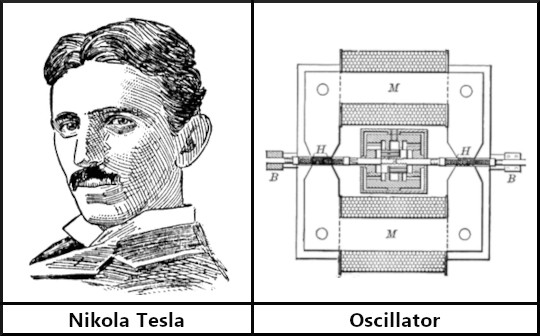Nikola Tesla? Apocryphal?

Question for Quote Investigator: The electrical engineer Nikola Tesla became famous via his inventions in the domains of alternating current and wireless communication. Apparently, he disliked broadcast radio programs. He considered radio to be a nuisance and a distraction which impeded his concentration. Would you please help me to find a citation?
Reply from Quote Investigator: In 1932 Nikola Tesla celebrated his 76th birthday, and the “New York Herald Tribune” interviewed him in his residence at the Governor Clinton Hotel in New York City. Boldface added to excerpts by QI:1
This hotel has a radio in every room. But Mr. Tesla’s complaint was not so much a matter of his neighbor’s music as it was a matter of personal taste.
“The radio, I know I’m its father, but I don’t like it,” he said. “I just don’t like it. It’s a nuisance. I never listen to it. The radio is a distraction and keeps you from concentrating. There are too many distractions in this life for quality of thought; and it’s quality of thought, not quantity, that counts.”
Below are additional selected citations in chronological order.
One of Tesla’s statements was particularly eye-catching, and it was reprinted as a filler item in other newspapers during the following weeks such as “The Bangor Daily News” of Maine2 and the “Wilmington Morning News” of Delaware:3
The radio, I know I’m its father, but I don’t like it. I just don’t like it.—Nikola Tesla.
Nikola Tesla died in January 1943, and the United Press news service distributed an obituary which reprinted the quotation from the 1932 piece in the “New York Herald Tribune”. Thus, the quotation achieved further distribution in the pages of “The Pittsburgh Press” of Pennsylvania4 and “Brooklyn Eagle” of New York.5
In 1983 “The Pittsburgh Press” published an article about Tesla which included a rephrased version of the quotation:6
His work with alternating current helped bring about the advancement of the radio, a device Tesla despised. He once told friends, “I know I helped bring about the development of the radio, but I hate it. It’s a nuisance. I never listen to it. The radio is a distraction that keeps you from concentrating.”
On his 76th birthday, he correctly predicted that one day energy would be transmitted to another planet and that power would be projected without wires through the stratosphere.
In conclusion, Nikola Tesla should receive credit for the statements he made during the interview published in the “New York Herald Tribune” in 1937. His statements were republished in his obituary from the United Press in 1943.
Image Notes: Public domain illustrations of Nikola Tesla and an oscillator which produces alternating currents. Images have been resized and retouched.
Acknowledgement: Great thanks to Stefan Draschan whose inquiry led QI to formulate this question and perform this exploration. Thanks to Craig Good for pointing out a typo.
Update History: On March 18, 2025 the format of the bibliographical notes was updated.
- 1932 July 10, New York Herald Tribune, Tesla, at 76, Calls Radio His Despised ‘Child’: It Is a Nuisance and Distraction, Says Inventor of Electrical Devices, Quote Page 11, Column 4, New York. (ProQuest) ↩︎
- 1932 July 22, The Bangor Daily News, (Filler item), Quote Page 13, Column 2, Bangor, Maine. (Newspapers_com) ↩︎
- 1932 July 27, Wilmington Morning News, (Filler item), Quote Page 2, Column 8, Wilmington, Delaware. (Newspapers_com) ↩︎
- 1943 January 8, The Pittsburgh Press, Nikola Tesla, Discoverer Of Radio Principle, Dies (The United Press), Quote Page 39, Column 5, Pittsburgh, Pennsylvania. (Newspapers_com) ↩︎
- 1943 January 8, Brooklyn Eagle, Nikola Tesla, Electrical Genius; ‘Father’ of Radio Hated It, Quote Page 11, Column 4 and 5, Brooklyn, New York. (Newspapers_com) ↩︎
- 1983 September 22, The Pittsburgh Press, Stamp lauds inventor who once worked here by Jerry Vondas (The Pittsburgh Press), Quote Page C11, Column 2, Pittsburgh, Pennsylvania. (Newspapers_com) ↩︎